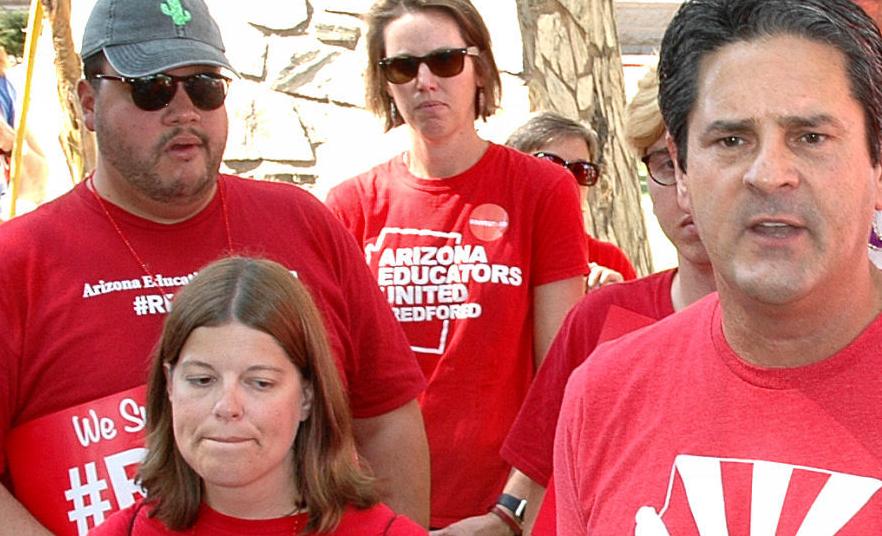PHOENIX — The fate of whether voters get to decide on a higher income tax on the wealthy could depend on a judge’s math decision.
A lawsuit filed Tuesday by the Arizona Chamber of Commerce and Industry contends the petitions circulated by the #InvestInEd committee are “objectively false and misleading.” Attorney Kory Langhofer wants a judge to block the issue from getting on the November ballot.
The measure, if approved, would boost income tax rates on individuals making more than $250,000 and couples in the $500,000-plus range, to raise an estimated $690 million for education.
Much of the litigation is based on numbers — and how voters may understand them.
Langhofer points out that individual Arizonans now pay 4.54 percent on any income of more than $150,000, or $300,000 for couples.
The initiative, if approved, would establish a new 8 percent tax bracket for earnings above $250,000 for individuals and $500,000 for couples. Those in the $500,000 individual and $1 million married category would pay 9 percent on earnings above that level.
Based on that, the initiative description says it would increase tax rates by 3.46 percent for those in the first category and 4.46 percent for those in the new top bracket.
Langhofer says the math is bad, at least in how the increase is described. He said if the rate was really going up 3.46 percent, someone who owes $17,085 under current law would owe $17,725 under the proposal.
Instead, Langhofer said it would be accurate to tell voters that the tax rates on income above $250,000 would go up by 76.2 percent — the percent increase between 4.54 and 8.0 percent — translating to a liability of $22,311 if the initiative becomes law.
Petitions with the other description should be thrown out, he argues.
Jim Barton, attorney for the campaign, countered, “This lawsuit is such a reach, I can’t even believe it.”
Barton said it is Langhofer who is trying a bit of creative math. Such math didn’t sell any better in 2008, he said, when foes of a proposed percentage point increase in the state’s 5.6 percent sales tax rate told a judge it should be described to voters as a 17.8 percent increase in taxes. The judge threw out that claim.
“I’ve gone to court successfully and had that kind of nonsensical libertarian junk thrown out,” he said, calling it “absolutely deceptive” to claim the initiative would result in a 76 percent tax increase. “It is a 3.46 percent increase.”
Langhofer also argues, meanwhile, that the initiative would rescind a 2015 law that indexes all income tax brackets, a move that would affect those in lower-wage categories.
The 100-word description of the measure fails to inform voters of that fact, he said.
Barton counters that Langhofer is off-base and the indexing is preserved.
Proponents of the measure contend the state needs a dedicated source of revenues to guarantee not only promised teacher raises but also to help bring state per-pupil spending closer to the national average.
No date has been set for a hearing.





